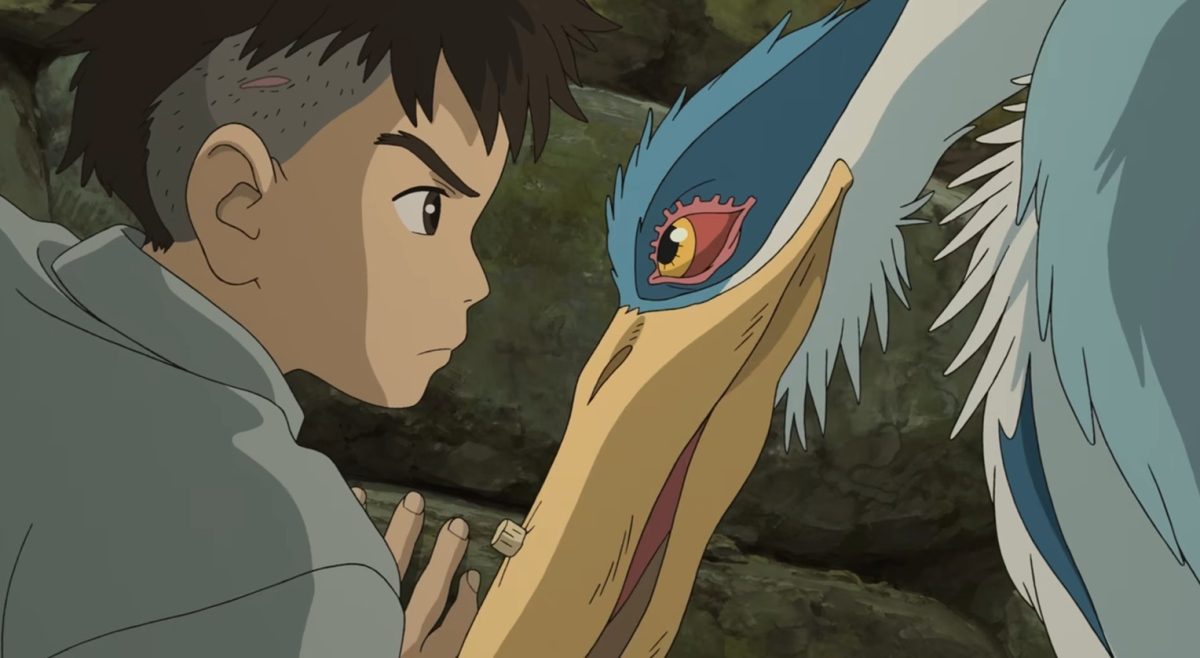The much awaited new Studio Ghibli movie, “The Boy and the Heron” premiered in theaters on Dec. 8, meeting all the expectations of many Studio Ghibli fans. It was emotional, relatable, and beautiful in pictures, along with the fable-like plot – everything that a Studio Ghibli movie usually is.
I went to watch the new movie last week with my friends, and aside from the slightly scary looking heron, it was everything I expected it to be and more.
The movie starts out when the main character, Mahito, loses his mother to a house fire during the WWII-era of Japan. He then moves with his father to his aunt’s estate, due to the fact that his father is now with his mother’s sister. As soon as they get to the estate, Mahito is greeted by a huge gray heron, intriguing him.
He begins to explore the estate, following the heron along. The heron then leads him to a massive tower, and Mahito feels a calling toward it. He begins to go into the tower, but his father calls him and he is forced to turn back, leaving both the tower and the heron behind.
Mahito continues to feel drawn to the tower over the next few days, and the heron begins to incessantly bother him. Mahito does his best to ignore it, until his aunt goes into the woods near the tower and then does not return. It is then that Mahito finally goes into the tower, per the heron’s request.
On the journey that the gray heron takes him on, Mahito learns of the inevitability of death of not only people, but institutions and whole worlds as well. Through this, he takes away the fact that he should do his best to live the best life he can. He tries harder to let himself be a kid, and make the most of his time.
I really liked the whole concept of this movie, and it wholeheartedly exceeded my expectations. I believe that audiences may find themselves relating to Mahito’s struggles, since he loses his mother. His journey to the tower is almost like his escape from his emotional struggles. This definitely serves as a factor that audiences can relate to.
When Mahito returns from his journey, he has a new outlook on life. He begins referring to his aunt as his mother, per her request. He is happier overall. He begins to accept change, moving back to the city after staying at the estate for a little while. I feel like these aspects are what people tend to strive for in life, but fail to reach due to extenuating circumstances.
Mahito’s journey is one of loss and lack of control, exhibiting the everyday struggles of the human population. The relatability of this movie is truly its charming point.




